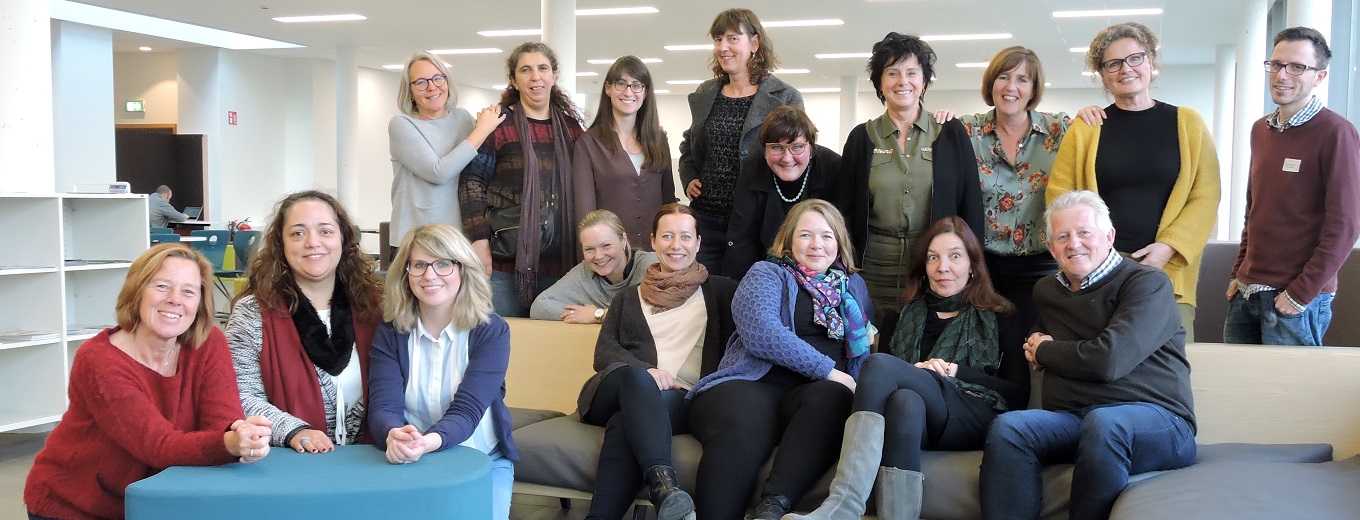Swiss and EU education actors co-developed a tool-kit providing effective and practical methods to reduce the dropout rate in adult education.
The Swiss Federation for Adult learning (SVEB) collaborated with partners from the European Union (EU) on a project – “dropping-in the dropouts” (DIDO) – whose main goal was to tackle drop out in adult catch-up education. The purpose of this collaboration, which lasted three years (2017-2020), was to develop effective tools in order to increase the learning motivation of adult students throughout Europe. Various adult education providers from Belgium, Denmark, Finland, the Netherlands, Portugal and Switzerland participated in this project. More than 30 practitioners met regularly for transnational meetings in order to exchange good practices in the field. The purpose of the new toolkit is to provide professionals in adult education with the appropriate tools to be able to identify adult learners at risk of dropping out and to keep them in education. It also aims at empowering adult learners and at giving them the skills needed for the labour market.
In Switzerland, adults dropping out of catch-up education constitutes a real issue as an important number of individuals do not have a professional qualification (4.8% of young people aged 18 to 24 are outside the education system without any upper secondary level qualifications). Furthermore, 20% of adults obtaining their qualifications through catch-up education drop out of courses early whereas only 6% of young people quit ordinary basic training. Thus, SVEB decided to join this project because such tools preventing dropout did not exist. It was seen as an education innovation.
The project was divided in two phases: the first one consisted of conducting a qualitative research in each participating country in order to determine the causes of adult dropouts. First, the consortium had to agree on a common definition of “adult education” as it does not mean the same in every country and because the relevant institutions have quite different missions. Once all partners agreed on common goals, the collaboration did prove successful. Indeed, this collaboration demonstrates that diversity has a strong added value, as multiple tools were created in order to address the various needs of the wide variety of contexts and actors. Even though the challenges faced by adult learners differ greatly between the countries, depending on the characteristics of the regions and of the education systems, it was possible to define six main clusters, which can explain dropouts in catch-up education: i. expectation; ii. class dynamics; iii. organisational issues; iv. personal reasons; v. skills; vi. goals/perspective. The tools were then developed to respond to each of the clusters, for instance, some tools are related to the skills and personal issues of adult learners such as the “How much does it weigh?” tool).
By participating in such an international collaboration project, Swiss institutions can benefit from the expertise of other EU countries and learn about different ways of teaching, which can help improve the standard of the adult education system. Swiss actors can also build a solid network with European institutions through their membership in the consortium. Indeed, the Swiss institutions for adult education are still in contact with their European counterparts, which enables the continued exchange of best practices. For the EU partners, the participation of Swiss actors has also been beneficial. It allowed integrating another target group to test the tools as well as making the project more visible within Europe. Concretely, as Switzerland joined the project, the tools had to be developed in German and in French too, which means that institutions from France, Germany or Austria can access it, even though they were not members of the consortium. Besides, the Swiss system of training of trainers in adult education is a highly professional and formalised system, which can serve as a model for other countries.
The results of the DIDO project were disseminated in Switzerland by the five training organisations that took part in the project. Swiss institution still use the toolkit as a best practice and overall the attitude in adult education changed, which demonstrates the value of the European partnership. Undoubtedly, such collaboration provides Swiss institutions with food for thought on their practices and can innovate and increase the quality of their training offer.

